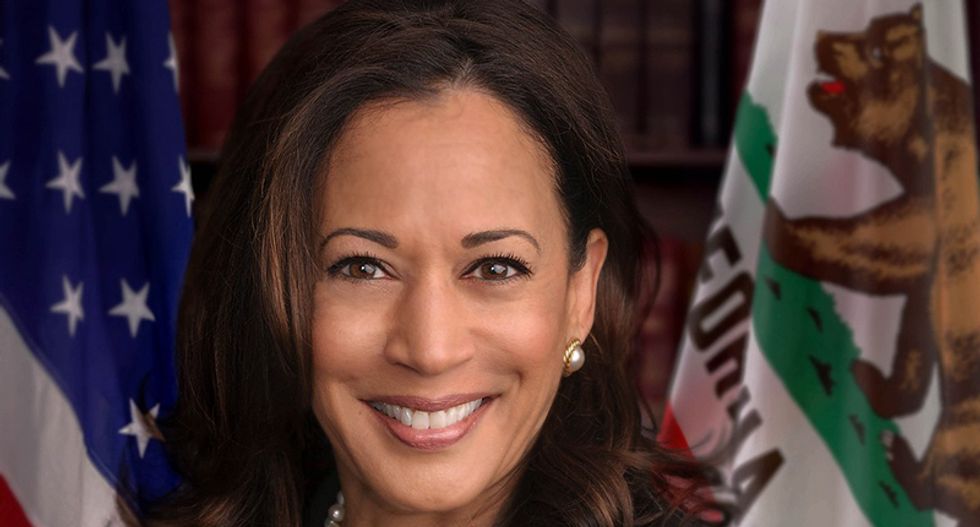Kamala Harris picks the moderate, technocrat lane


There are at least two kinds of Democrats:
The biggest question Democratic primary voters will face next year is which of these is true, and likeliest to deliver a victory in 2020. Right now, it seems like a majority want number 1.
Fifty-four percent of Democratic primary voters say they prefer a nominee who proposes larger-scale policies that might cost more and be harder to pass — but could still result in major change. — www.nbcnews.com/...
When we look at the major Democratic candidates vying for the nomination, they fall into the two camps. Bernie and Elizabeth Warren clearly appeal to voters who believe we need structural change. Joe Biden is quite clearly appealing to those who are largely fine with the “bi-partisan consensus”, with Trump removed.
Up until recently, Kamala Harris has sought to keep one foot in each camp, but it is becoming increasingly difficult to do so. At times, it almost felt like she was running for Attorney General, ready and able to implement whatever policies the president asked her to. And I do think she’d make a good AG.
But if she was to stay in the race, sooner or later, Senator Harris was going to have to pick a lane, and it looks like it is the second option.
“I’m not trying to restructure society,” Ms. Harris said. “I’m just trying to take care of the issues that wake people up in the middle of the night.” Ms. Harris also acknowledged that she has sometimes struggled to explain her views on broader subjects, suggesting this reflected in part her limited interest in issues she views as overly abstract.At times, her shifts in tone and substance have been abrupt. Earlier this month, she laid out a clear and creative plan to lower drug prices with presidential executive powers. Then, hours later, she took a new and confusing stance on “Medicare for All”-style health insurance, endorsing the program but opposing taxes typically seen as necessary to fund it.
That set of instincts — her preference for narrow, tactile proposals over grandly ambitious ones, her facility with procedure and unease with ideology — defines her approach to politics, according to Ms. Harris and her closest associates. And her ability to reconcile those inclinations with her party’s mood could determine the fate of her campaign. — www.nytimes.com/...
The article goes on to note that Kamala Harris has been notably quiet on top level taxes to address income inequality. Senator Harris, the NY Times says, has “proposed no major policies to restrain extreme wealth and corporate power”.
And then this weekend, there was this:
A program that offers debt-forgiveness based on what? Someone raising money to start a business? What are the odds of these businesses succeeding, especially when run by people just out of college? The motivation of this program seems clear, limiting the benefits to people who fit some narrow right-wing filter of who is “worthy”.
In what has now become a pattern, Senator Harris had to issue a clarification for this narrow policy:
We don’t have to analyze them endlessly. Let’s make it simple. How have such experiments worked before, even without this new “start a business” requirement?
A Department of Education program gives talented, up-and-coming teachers a grant, not a loan, to help them pay for college. The condition: After you graduate, you have to teach in a low-income school.Thousands of teachers kept their end of that bargain but had their grants turned to loans anyway after sending in a required form a day late or accidentally missing a signature. Some are in crippling debt because of it.
Two NPR reporters spent a year and a half getting to the heart of this bureaucratic nightmare. Today on the show, we learn what they found, and how it changed a department. — www.npr.org/…
Michael Lewis, author of “Moneyball,” “The Big Short,” and “Liar’s Poker,” interviewed a lead plaintiff in a class action suit asserted by Selendy & Gay and spoke with Partner Maria Ginzburg for the latest episode of his podcast, which examined how Navient, the nation’s largest loan servicer, led thousands of borrowers astray to boost the company’s profits while harming public servants attempting to pay off student loans.“People who dedicate their lives to public service regularly go into these careers with the back-breaking burden of tens of thousands of dollars of debt,” said Ginzburg, who is leading the class-action lawsuit with Faith Gay and Lena Konanova on behalf of nine teachers to ensure these public servants get the loan forgiveness to which they’re entitled. “But 98% of borrowers who submitted loan forgiveness applications since October 2017–the first date on which a borrower could have completed the 120 required payments–have been rejected.” — selendygay.com/...
The next Republican administration is going to have a field day with these programs, undermining them in a million different ways. People are going to have a hard time understanding them and qualifying for them. We’ve been down this counter-productive road before.
You know what, this is ridiculous. These are not the kind of proposals I think are worth entertaining. Simple, universal programs are what we need, and must stop requiring people to meet right-wing morality codes to “deserve” healthcare or an education.
What Senator Harris is proposing is not a solution, it is a mirage designed to create ever-increasing levels of agony for those foolish enough to be conned into counting on it. Do we really want to create more Kafka-esque nightmares for young people?
The only appropriate response to such proposals is ridicule. It’s a joke, and should be treated as such. So here you go: